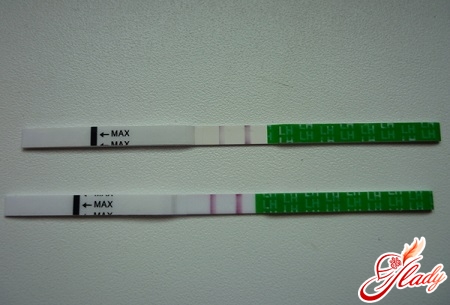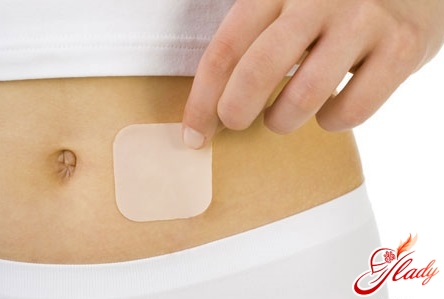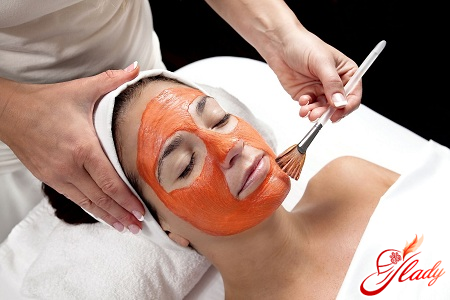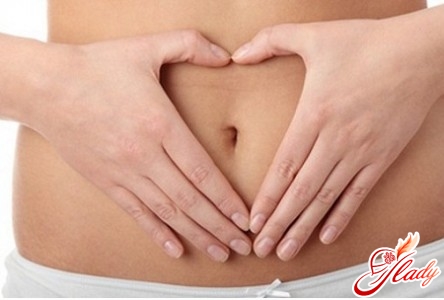 How to deal with hyperhidrosis (increasedsweating)? And in general - is it necessary to wage a merciless fight against it? After all, everyone sweats in some situations, and no one considers it a disease. In extreme cases - a feature of the body, albeit unpleasant, but still not to such an extent that you need to run to the doctor. And here many make a big mistake. Excessive sweating can signal dozens of problems in the body! Of course, sweating - this is a natural function of the human body, which helps to rid the body of "toxins". Together with the kidneys, sweat glands are involved in regulating the volume of fluid, its excess is excreted through the urinary tract, as well as through sweating. Remember how you react to the heat - you want to go to the toilet less often, but sweat, as they say, pours out like a stream. Or take another situation when you ate a large amount of watermelon or drank a lot of water. Here, sweating may increase somewhat, but the main load falls on the kidneys - you will often want to go to the toilet "to pee".
How to deal with hyperhidrosis (increasedsweating)? And in general - is it necessary to wage a merciless fight against it? After all, everyone sweats in some situations, and no one considers it a disease. In extreme cases - a feature of the body, albeit unpleasant, but still not to such an extent that you need to run to the doctor. And here many make a big mistake. Excessive sweating can signal dozens of problems in the body! Of course, sweating - this is a natural function of the human body, which helps to rid the body of "toxins". Together with the kidneys, sweat glands are involved in regulating the volume of fluid, its excess is excreted through the urinary tract, as well as through sweating. Remember how you react to the heat - you want to go to the toilet less often, but sweat, as they say, pours out like a stream. Or take another situation when you ate a large amount of watermelon or drank a lot of water. Here, sweating may increase somewhat, but the main load falls on the kidneys - you will often want to go to the toilet "to pee".
Where does the norm end and the disease begins?
Hyperhidrosis is spoken of in cases whereExcessive sweating interferes with living and performing everyday activities. This applies to both everyday life and work. People suffering from severe palmar hyperhidrosis cannot even work in their professions: musician, work with documents (lawyer, accountant). Any activity that involves touching objects with their hands is unavailable to these people. In addition, there is a purely psychological barrier - with eternally wet and cold palms, a person begins to feel embarrassed to extend his hand for a handshake. This leads to the fact that he quits his job, withdraws into his home. The circle of communication sharply narrows, the patient develops neurosis, and subsequently - depression. And we have analyzed only one case of hyperhidrosis, when one area sweats - the palms. Scientists have long been interested in the causes of profuse sweating on the palms. Often this disease is hereditary. But it is not at all a fact that if the father suffers from palmar hyperhidrosis, the same fate awaits the son.
What other types of increased sweating are distinguished by doctors
It must be said that there are many types of excessive sweatingquite a lot. There are two main signs by which doctors divide hyperhidrosis - these are local (local) and general. Local, in turn, is subdivided by the localization of profuse sweating:
- palmar-plantar form;
- axillary hyperhidrosis;
- craniofacial (from the Latin words —"head" and "face", in this case the scalp or the entire face sweats. But individual parts of the face may be covered with beads of sweat: the nose, forehead, cheeks or the area above the upper lip.
- hyperhidrosis of inguinal and perineal;
- hyperpotency of the back;
- hyperhidrosis of the abdomen.
Each type of local hyperhidrosis is treated differently, and the treatment plan is selected individually for each patient.
What to Tell a Doctor for Proper Diagnosis
Dermatologists — exactly thosespecialists who treat skin diseases encounter this pathology more often than others. First of all, the doctor must find out what contributed to the cause of excessive sweating. To do this, a complete anamnesis is first collected (history of the disease: when the first manifestations of the disease began, how often attacks occur, are there similar cases in the family). Then the doctor prescribes preliminary general tests: blood, urine. Sometimes a sweat test is done. If abnormalities are detected, an extended blood test, X-ray, ultrasound of the internal organs are prescribed. This is done in order to exclude other diseases that could lead to excessive sweating.
What diseases are accompanied by excessive sweating
There is a whole list of diseases in whichincreased sweating is one of the signs, but not the leading symptom. In these cases, the underlying disease is treated, and sweating gradually decreases and then returns to normal. An example is the well-known terrible disease tuberculosis. Sometimes it is accompanied by a cough, but there are also latent forms, in which the only signs of problems in the body are general weakness and sweating. The cause of profuse sweating may be an infection, and it is not detected immediately. Laboratory tests of blood, urine, and sputum are required. In addition to tuberculosis, there are many chronic infections accompanied by profuse sweating. As for acute infectious diseases, almost all of them occur with fever and excessive sweating. You don't have to go far for examples - this is the flu and other common diseases transmitted through the air (airborne).
Endocrine diseases and excessive sweating
Many diseases of the endocrine systemis accompanied by profuse sweating. First of all, it is an increased function of the thyroid gland, the so-called "goiter" (or "exophthalmos"). From these names it is clear that the main symptoms of an increase in the content of hormones "thyroid" are unusually bulging eyes, a formation on the neck resembling a bird's goiter (this is the enlarged thyroid gland). When the function of the thyroid gland is increased, too much of the hormones it produces are released into the blood. This leads to increased sweating, palpitations, mental instability (such patients sometimes laugh, sometimes cry). The disease is treated by a doctor - an endocrinologist. In most cases, the person's condition can be brought back to normal, sweating also becomes normal. Endocrine diseases also include diabetes, which also causes excessive sweating of the hands, armpits, and upper body. If the patient follows all the doctor's instructions, injects insulin (or takes pills) on time, and follows a diet, the condition can be normalized, and sweating decreases.
Increased sweating in cancer
The cause of excessive sweating may beoncology. Many tumor processes occur with elevated temperature and sweating. This is especially typical for intestinal tumors, some tumors of the female genital organs. Unfortunately, tumor processes in the initial stages are difficult to detect, but if this is possible, then surgery often saves the patient's life. Therefore, with incomprehensible jumps in temperature and increased sweating, it is necessary to examine the entire body so as not to miss a serious disease.
Increased sweating during pregnancy
Pregnant women often complain of increasedsweating that was not observed before pregnancy. This is due to changes in hormonal levels. It is very difficult to combat this sweating, because pregnant women cannot take most medications, and herbal infusions should also be treated with caution. Effective antiperspirants that contain aluminum are also undesirable during this period. It happens that excessive sweating persists after childbirth, throughout the entire period of breastfeeding. Here, we can only advise frequent hygiene measures - showering, wiping sweaty areas. Usually, a few months after stopping breastfeeding, the hormonal background normalizes and sweating returns to normal.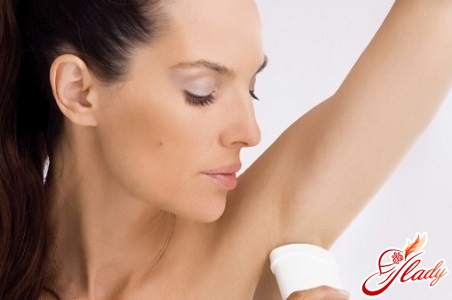
Other reasons for the general hyperdrive
There are many more diseases that causeincreased sweating. These include some hereditary diseases, acute poisoning, acute emergency conditions such as shock or myocardial infarction. And a separate group includes cases of hyperhidrosis without a specific cause. Hyperhidrosis of the body causes great inconvenience, but a comprehensive examination does not reveal any pathology. Then we are talking about "essential" hyperhidrosis, that is, it is considered as a separate disease, not associated with any other.
Local hyperhidrosis is treated in dozens of ways
Localized (local) hyperhidrosis is most oftenis an independent disease. If the disease reaches a moderate or severe stage, when sweat flows in drops or even "pours like a stream", then special treatment is carried out. This includes taking sedatives, because this condition has a negative effect on the psyche, and physiotherapy, and the use of antiperspirants (deodorants). In some cases, injections of Botox or Dysport help well. They are used for palmar-plantar, axillary and even inguinal-perineal forms of the disease. In case of severe sweating of the palms, an operation is performed - an endoscope with miniature instruments is inserted through a small puncture into the neck. The surgeon uses a special clamp to compress the section of the nerve that is responsible for sweating on the hands. After such an operation, the effect remains for life, which pleases patients who have suffered for years before. What is compensatory hyperhidrosis The word "compensation" speaks for itself. Compensatory - in this case means "instead of another". Let's give an example. Some time after surgery for palmar hyperhidrosis, a person's back begins to sweat heavily. The hands are cured, the palms have become dry, but the back sweats so much that you have to change clothes several times a day. In this situation, patients sometimes ask to have a second operation and remove the clamp from the nerve so that the back becomes dry again. So, we have analyzed most of the causes of excessive sweating, but we must remember that self-medication is not necessary. Today, doctors will help you choose a treatment method for almost any form of hyperhidrosis.





